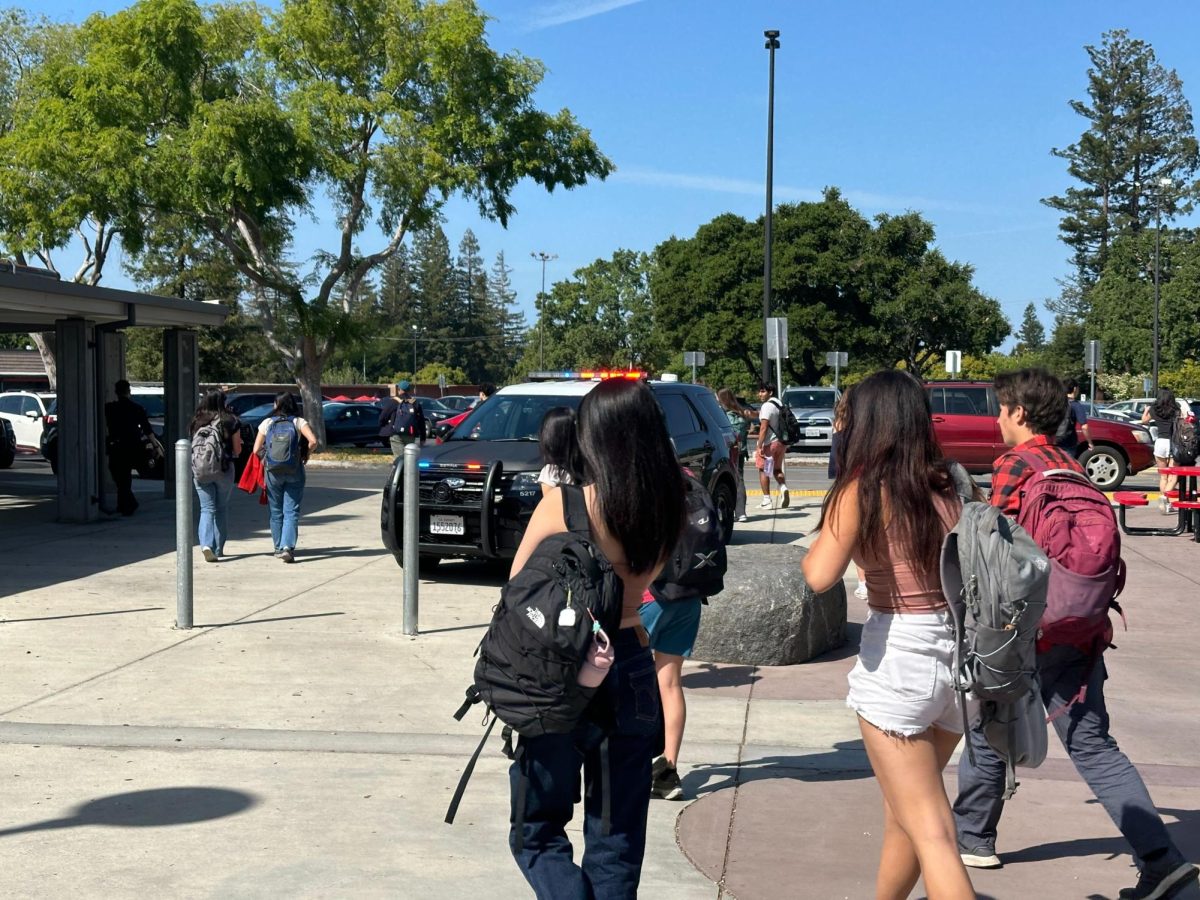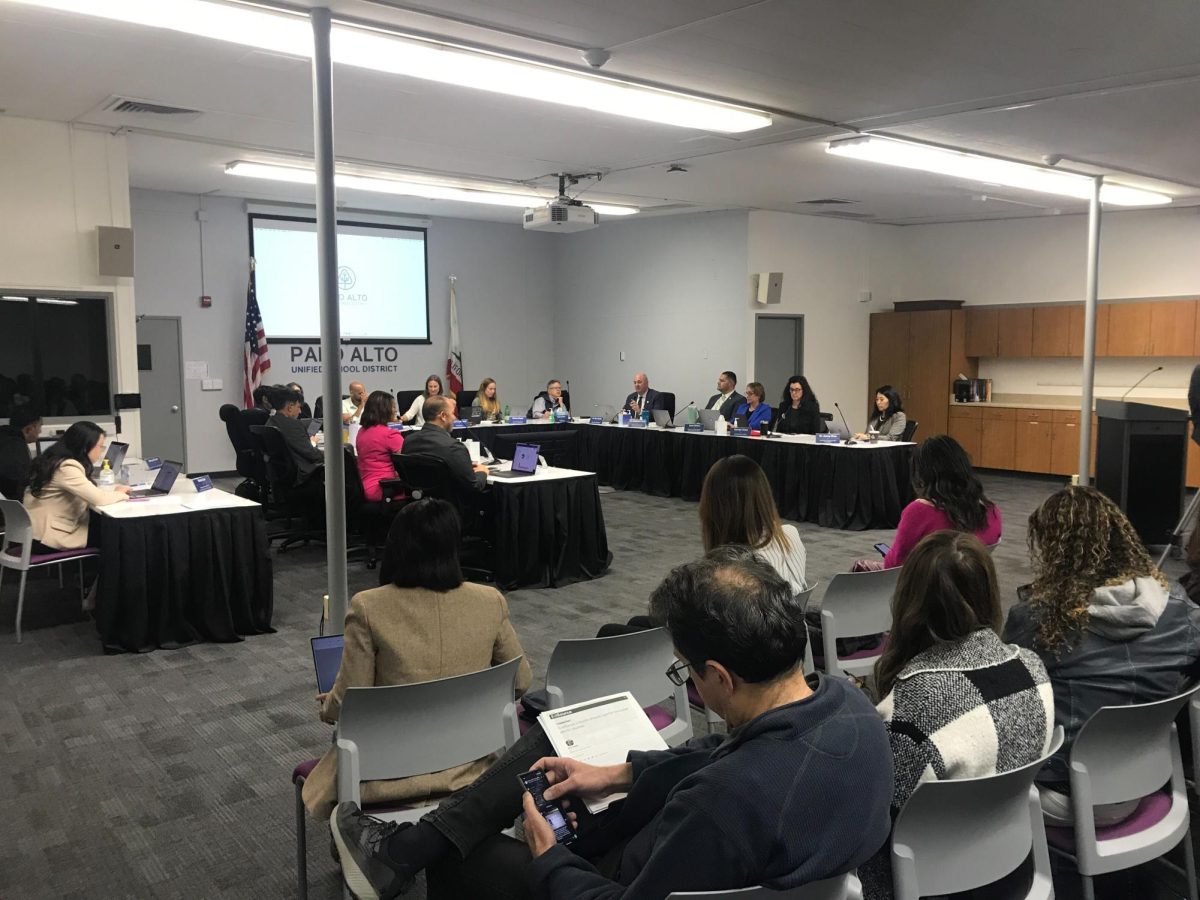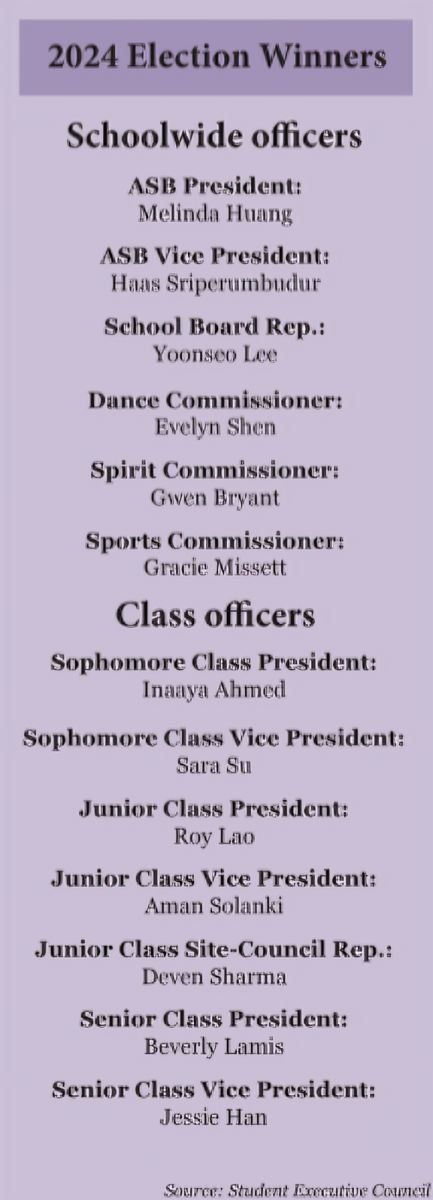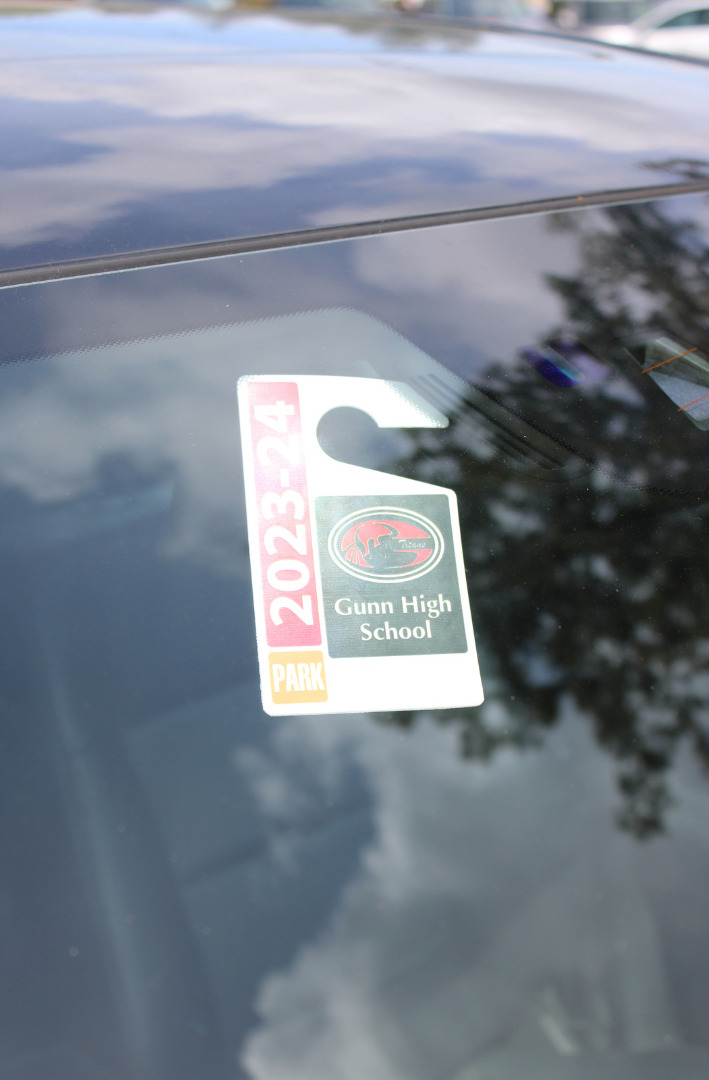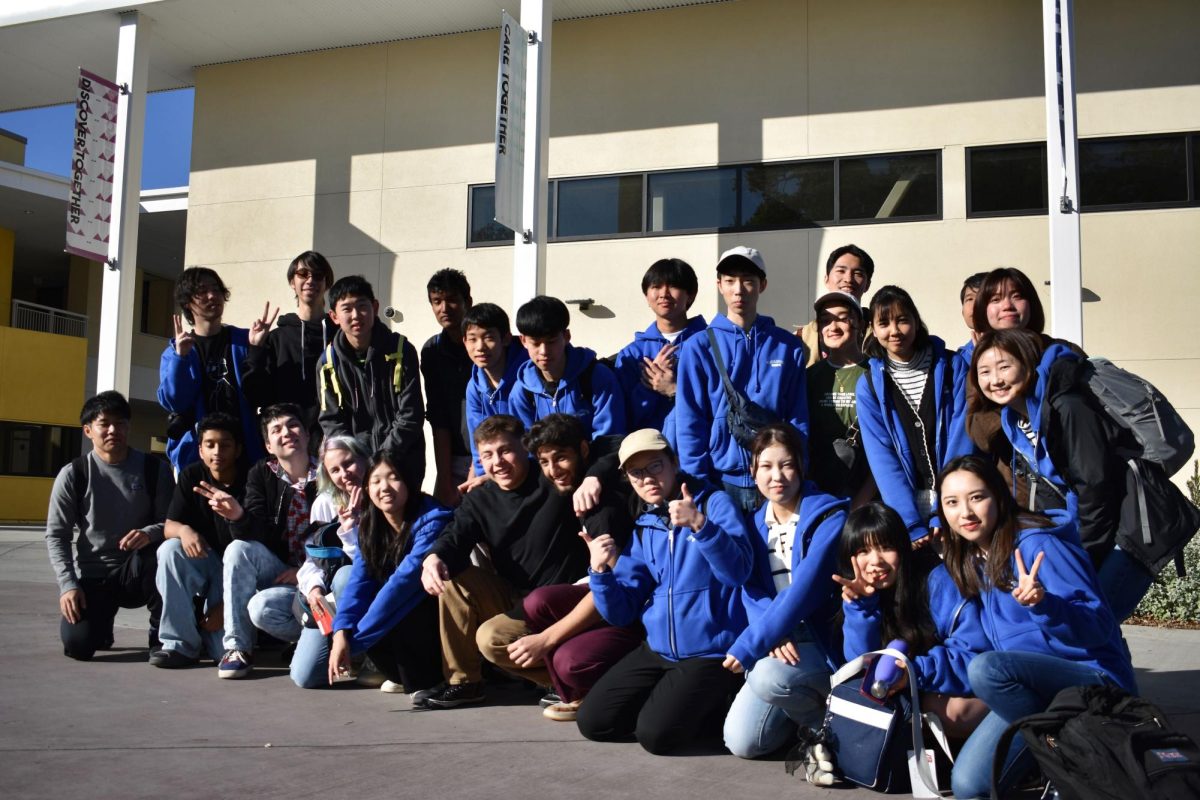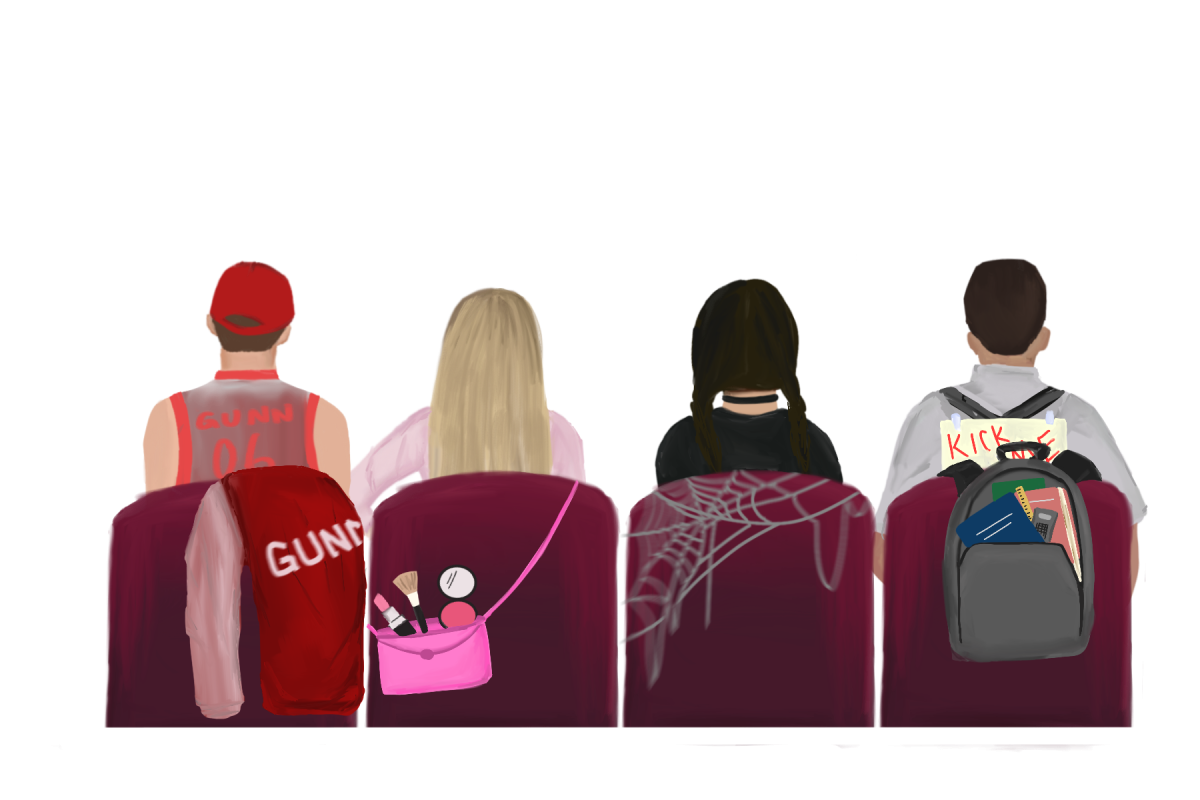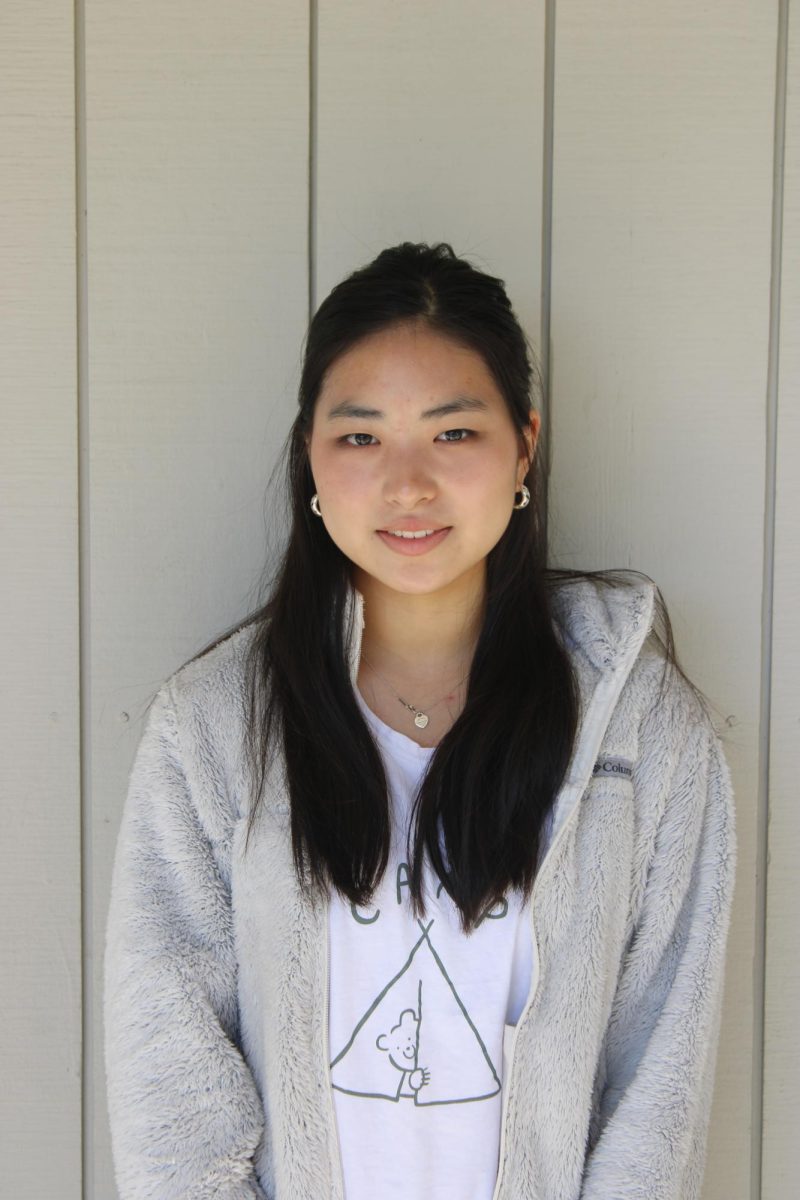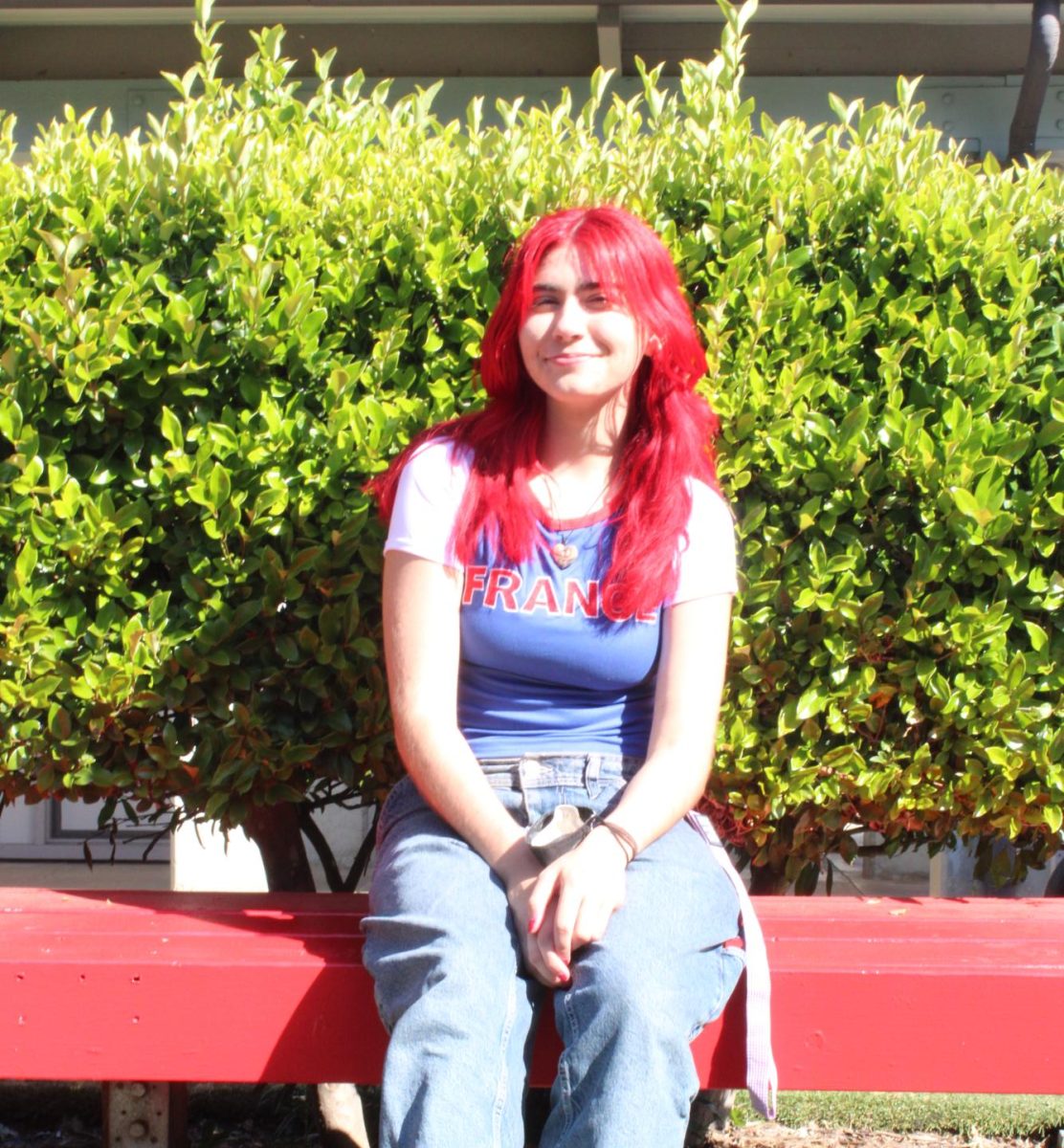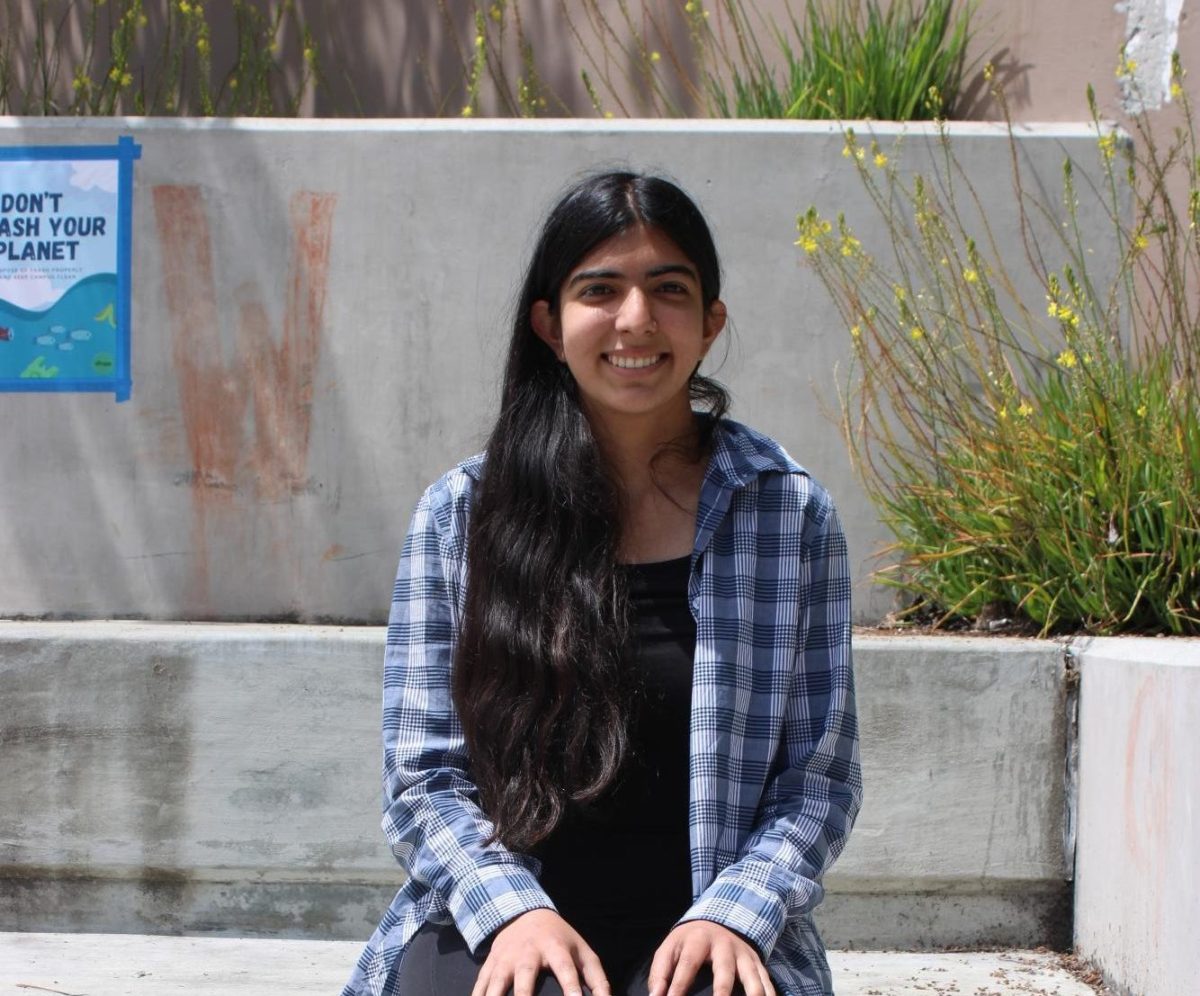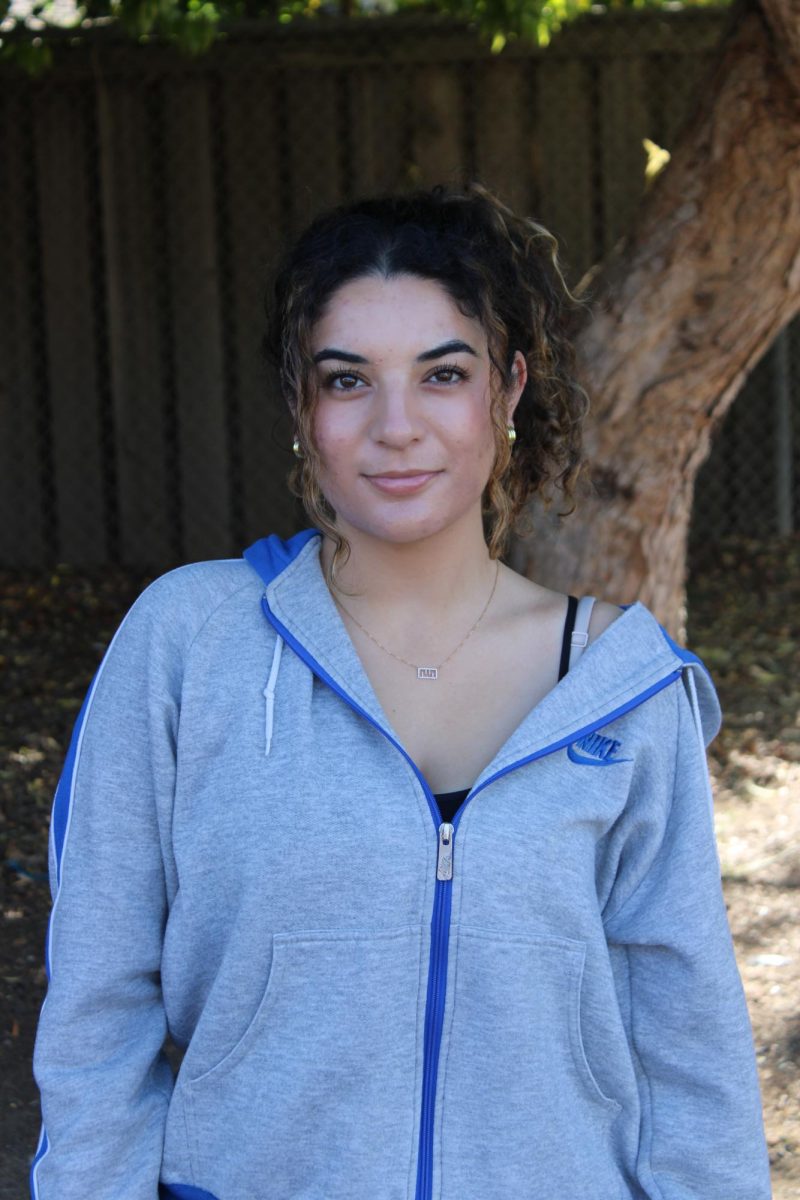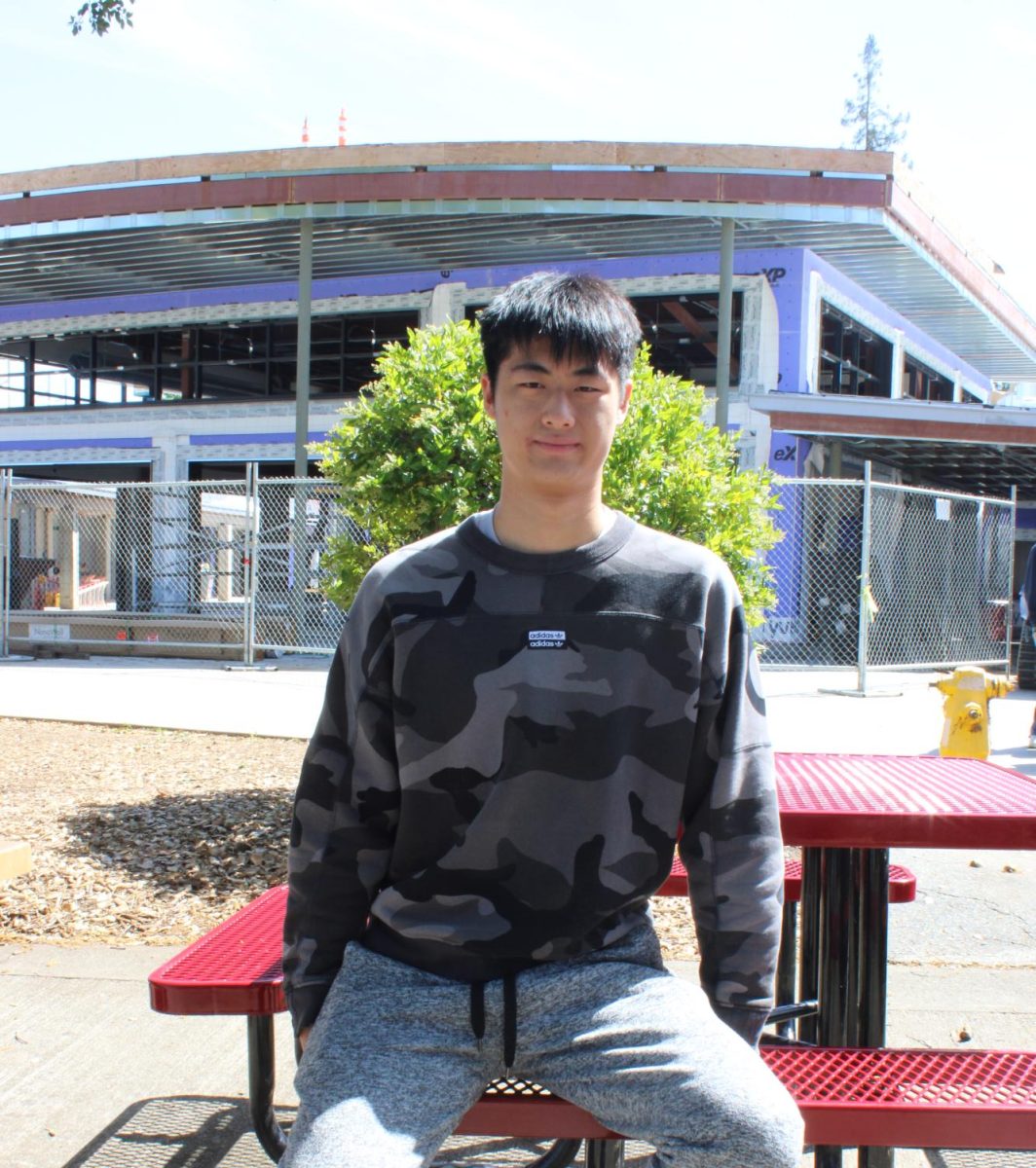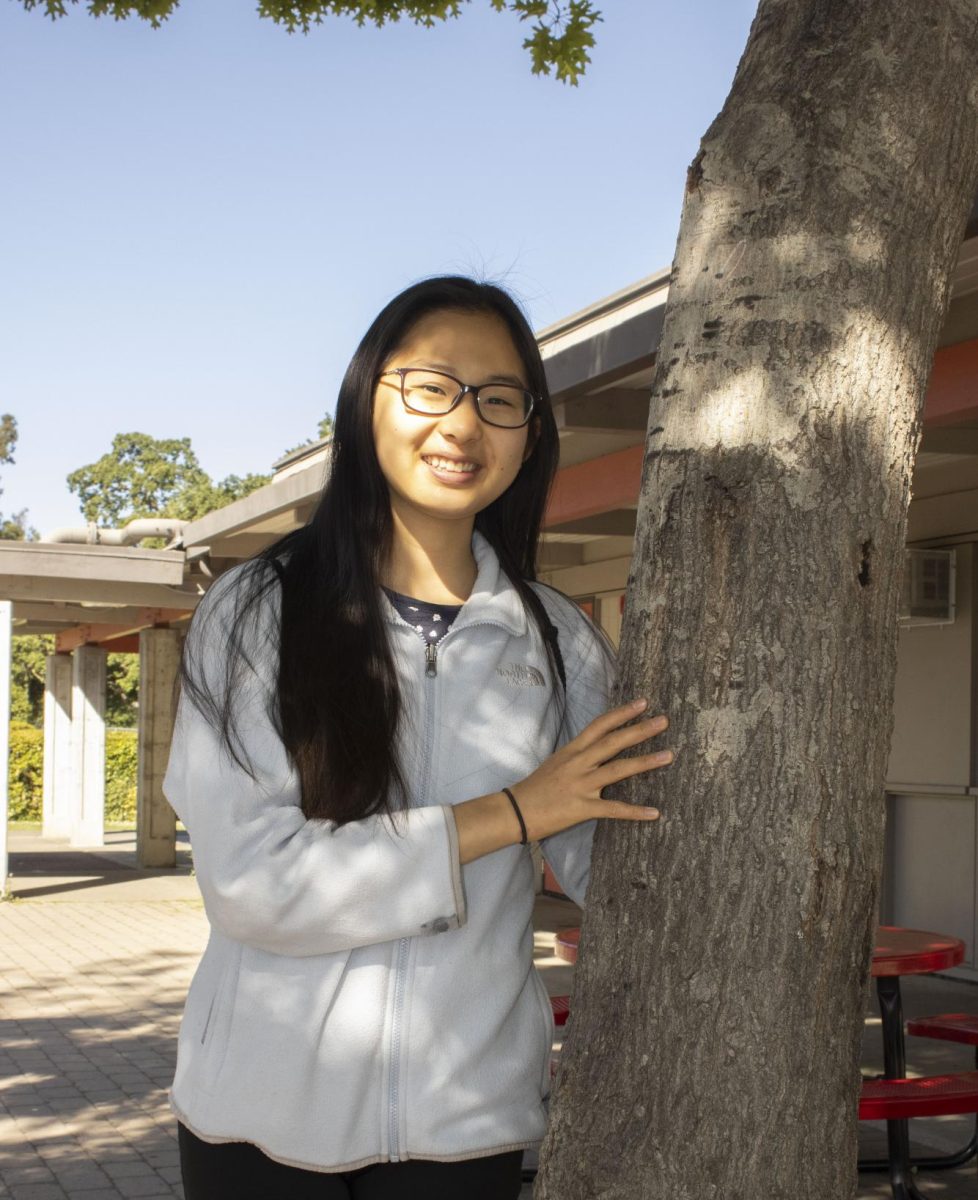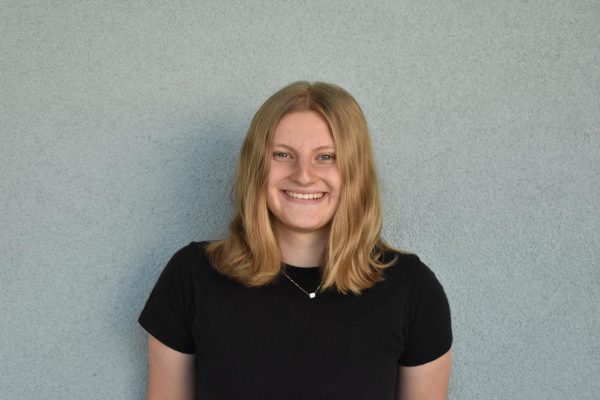On Sept. 12, the PAUSD school board recommended that district staff implement the soon-to-be required ethnic studies course in fall 2025 as a graduation requirement for the Class of 2029. Although this recommendation extends the district’s initial time frame by a year, PAUSD will implement the course one year before it is legally required by Assembly Bill 101, which was signed by Gov. Gavin Newsom in October 2021 and mandates an ethnic studies course in all public high schools.
The only thing worse than not talking about stuff is talking about stuff in a way that does more damage than being silent. I would like to take the time and make sure we do it safely.
— PAUSD Board Vice President Jesse Ladomirak
Ethnic studies at Gunn will be a sociology course examining the societal landscape of different ethnicities’ experiences and the historical context behind current events.
The current plan for the course, officially adopted during the Oct. 9 staff-development day, replaces the first semester of ninth-grade world history with the ethnic studies course. The content of the removed semester will be distributed across two semesters of ninth- and tenth-grade world history. District staff are preparing the curriculum to be presented to the school board this December.
The timeline — which was also recommended by the Ethnic Studies Committee, comprising social studies teachers at Gunn and Paly — allows the district to implement the course as soon as possible while still granting time to collect student and community input, according to Board Vice President Jesse Ladomirak. “The only thing worse than not talking about stuff is talking about stuff in a way that does more damage than being silent,” she said. “I would like to take the time and make sure we do it safely.”
With a date set, a student focus group led by Social Studies Instructional Lead Jeff Patrick met during PRIME on Oct. 18 to discuss what the skills, takeaways and content of the ethnic studies course should look like. The meeting served as a precursor to larger community meetings that will happen during the rest of the school year.
In preparation for the changes, world history teacher Christopher Johnson plans to start condensing his curriculum and incorporating more skill-based learning next school year. “Part of the push is to focus more on various skills such as sourcing, recognizing bias and opinion, and observational skills, but maybe one of the losses (is that) the content won’t be quite as rich as (before),” Johnson said.
The course’s placement aligns with that of many other districts in the state and is backed by a 2021 peer-reviewed Stanford University
Part of the push is to focus more on various skills such as sourcing, recognizing bias and opinion, and observational skills, but maybe one of the losses (is that) the content won’t be quite as rich as (before).
— World history teacher Christopher Johnson
Patrick, who taught the ethnic studies elective last year, said the new, required class will be altered to better suit freshman needs. It will center around four new Essential Learning Outcomes — historical thinking, writing, conversing and citizenship — in five units: identity, race and ethnicity, history and migration, language culture and learning, and action and civic engagement.
Gunn alumna Madison Yue, who took the elective last year and is a former features editor for The Oracle, emphasized the importance of engaging with diverse narratives early on. “I wish I had the option to take ethnic studies as a freshman,” she said. “I think it is important for freshmen to take this class because (they) can learn about these different narratives and perspectives at an earlier point in high school (to) help unify our community.”
The course, however, does not come without controversy: Community members have noted that a single semester might not be not enough time for both content breadth and nuance, while others have concerns that the new class could provide an excuse to exclude material on underrepresented groups from other social studies classes.
These concerns were brought up during the Oct. 18 focus group. Some countered these arguments by saying that ethnic studies would equip students with the mindset and skills necessary to further explore diverse narratives in their future social studies classes. Patrick also noted that the course will focus on local demographics, with opportunities for students to learn about specific ethnic topics that interest them, such as through the final unit’s action project.
At the Sept. 12 school-board meeting, PAUSD Superintendent Don Austin addressed other concerns. Instead of adopting the state’s model curriculum, he said that PAUSD is creating its own curriculum, which will be built around topics brought up by the Ethnic Studies Committee and in future community focus groups. “The controversy is around some elements of the model curriculum,” he said. “We’re not adopting that, so we need to be super clear about that.”
The current plan is for district staff to present a curriculum to the school board this December. “If we go with this timeline, we might have some revision time, both from students who are in that class and as we continue to look at it,” Austin said.
According to Patrick, the ethnic studies elective will remain on the course catalog so that Gunn students graduating before 2029 can still take it.
Yue also highlighted other opportunities to get involved for students who are interested in the ethnic studies material. “I would take advantage of the resources at Gunn — for example, getting involved in affinity groups or the student equity committee,” she said. “Even if you’re not of a specific culture, check out those different cultural clubs and participate in the cultural events that SEC hosts.”





